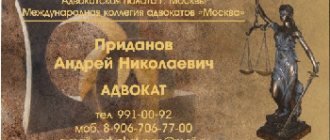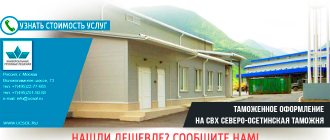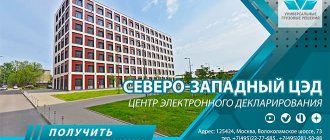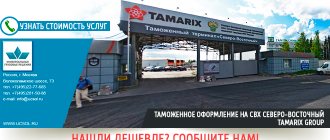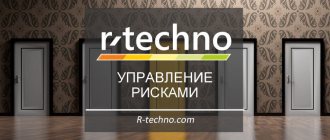Contacts and details
| Name | North-West Customs Administration |
| Customs code | 10200000 |
| Organizational structural form | Customs authority (not specialized) |
| Customs clearance | not produced |
| OKPO | 137414 |
| OGRN | 1037843059495 |
| TIN | 7830002582 |
| Full address | 191187, St. Petersburg, emb. Kutuzova, 20, lit. A |
| Telephone | +7 |
| Fax | +7 |
| [email protected] | |
| Website | https://sztu.customs.ru/ |
| Working with ATA carnets | Yes |
| OKATO code | 40000 |
| SOATO code | 1140 |
North-West Customs Department on the map
Subordinate organizations
- Pulkovo Customs (10221000)
- Karelian customs (10227000)
- North-West Operational Customs (10212000)
- Baltic Customs (10216000)
- Kingisepp Customs (10218000)
- St. Petersburg Customs (10210000)
- Murmansk customs (10207000)
- Pskov customs (10209000)
- Vyborg customs (10206000)
See also: St. Petersburg, Customs departments
Customs broker services
- Personal customs clearance specialist;
- We prepare and execute the necessary documentation - declarations, applications, various permitting forms, documents, reporting;
- Recommendations on HS codes for goods;
- Preliminary calculation of customs value and amount of advance customs payments;
- Drawing up DT projects and related documents;
- Document flow with customs;
- Submission of information at the request of the North-West Customs Administration;
- Representation of the Customer's interests in the customs authorities of the Russian Federation;
- Organization, if necessary, of preliminary customs inspection of goods and vehicles before submitting the DT;
- Drawing up a declaration of intent under the seal of the customs representative;
- Consulting in the field of foreign economic activity (FEA);
Functions of the North-West Customs Administration
In the North-West region, St. Petersburg and the Leningrad region, sea delivery of goods to warehouses in Finland, and then by road to Russian territory, is especially popular.
Most goods delivered this way are checked and cleared by the North-West Customs Department. This department serves 9 constituent entities of the Russian Federation, as well as the city of St. Petersburg. The annual turnover of goods passing through the customs department is estimated at 100 billion dollars, and therefore the department has the status of a key hub for export-import transportation, including international maritime traffic. The North-West Customs Administration is a law enforcement agency of the Russian Federation that manages customs affairs in the north-west region. NWTU carries out customs activities on a territory of more than 1 million 600 thousand square kilometers, in border areas with such countries as: the Republic of Belarus, Finland, Norway, Latvia and Estonia. The length of the borders managed by the North-West Customs Administration is 2,600 kilometers, most of which are on the border with Finland.
The main function of the North-West Customs Administration is to monitor compliance with trade rules of the subordinate territories. Today, the functions of the NWTU include responsibilities for the control and development of foreign trade relations carried out through 89 customs posts, 11 customs houses, 18 automobile checkpoints, 11 river checkpoints, 8 air and 10 railway.
Functions of the North-West Customs Administration:
- organization and control of customs activities;
- collection of customs duties;
- identification of smuggling and illegal trade;
- currency operations;
- implementation of organizational activities of customs authorities.
The North-Western Customs District provides the following types of services and customs regimes for participants in foreign trade activities:
- Export services – preparation of documents for the export of products and goods outside the borders of the Russian Federation. Goods exported for the purpose of sale on the territory of another state are subject to customs clearance. Export services include the following types of services such as: customs control, acceptance of customs duties and other payments, taxes. Incorrectly executed documents granting the right to export products can lead to serious fines, confiscation or even prison. The main guarantee of successful export services is compliance with all requirements of the economic policy of the Russian Federation, as well as the legislation of the Russian Federation.
- Customs transit regime is the provision of customs services to carriers on the customs territory of the Customs Union without paying customs duties and taxes, by escorting from/to the customs authority. A distinctive feature of the customs transit service is that imported goods must be returned to the point of release, since they have permission only for temporary stay in the country. The main area of use of customs transit is international exhibitions, galleries, etc. When applying the customs transit regime, goods are subject to a transit duty, but in fact the transit duty in the Russian Federation is calculated at a zero rate.
- Customs warehouse – provision of warehousing services without paying customs duties, as well as conducting licensing procedures. Placing goods in a customs warehouse allows you to store large quantities of goods without a final decision on their final destination. In addition, cargo in customs warehouses can bring significant savings on goods clearance, and also have a positive effect on delivery times to the recipient. Persons with such authority have access to goods located in a customs warehouse. Goods can be moved within a customs warehouse, sorted, labeled, but this should not entail a change in the nomenclature, packaging and means of identifying the goods.
- Release for domestic consumption is the usual release of foreign goods into the territory of the Russian Federation for further comprehensive use without the obligation to return to the country of export. The main and mandatory condition for entry into the release regime for domestic consumption is the availability of all necessary permits, as well as payment of customs duties and payments in accordance with the legislation of the Russian Federation. If all the necessary formalities are not met, the product receives conditional release status and cannot be transferred to third parties or used for its intended purpose.
- Processing in the customs territory is a regime in which the permitted period of stay of goods on the territory of the Russian Federation is the period of their processing. In taxation, such goods are not subject to payment only if the products of their processing leave the territory of the Russian Federation within the prescribed period.
- Processing outside the customs territory is a regime similar to that described earlier, with the only difference that processing takes place on the territory of another state without paying export duties, but with the guarantee that the processed products will be delivered to the territory of the Russian Federation. As a rule, the customs code under the regime of Processing outside the customs territory implies processing, processing of goods, repair or assembly.
- Temporary import (export) is a regime under which goods are imported (exported) from/to the country without paying customs duties or with partial payment. A product can fall under this regime only with an obligation to return to the country of release. This mode is used in the case of testing complex equipment, setting up, identifying defects, or malfunctions.
- Re-export is the final regime for many customs regimes, such as temporary import (export), processing in the customs territory, etc. Re-export is the export of goods that previously received a “preferential” import regime, when customs duties were not paid or when the amounts paid are returned. An example of the introduction of such a regime could be a foreign product that is defective, inoperable, or does not meet the declared characteristics. Also, goods resulting from trilateral transactions fall under this regime.
- Duty-free trade is a procedure for selling goods without paying customs duties. Applicable to the sale of goods when leaving the customs territory, as well as in duty-free shops. In our country, such stores are common at state borders in specialized points where sales are guaranteed only to those leaving the customs zone.
- Destruction is a customs procedure for the complete destruction of a nomenclature or consumer properties of goods without payment of import duties and charges. This procedure may include goods illegally imported into the territory of the customs zone, as well as goods destroyed by force majeure (fire, flooding, etc.) that are in a different customs regime.
- Refusal in favor of the state is a procedure for the gratuitous transfer of rights to foreign goods to the state. In this case, payment of customs duties for goods is not made and non-tariff regulation is not applied. All categories of foreign goods, except those prohibited for import into the territory of the Russian Federation, can be refused in favor of the state. Declarants see the main reason for this procedure in the fruitless (unprofitable) sale in the customs zone and the complex and financially unprofitable procedure for exporting from the TZ.
- Free customs zone - placement of goods in a territory falling under the category of non-obligatory payment of customs duties, VAT, and non-tariff regulation measures. Goods subject to this procedure are sold in the free economic zone by residents of the trade zone. The free economic zone is a customs control zone, and the circulation of goods is possible only within the framework of the free economic zone. The circulation of both goods of foreign origin and goods of technical specifications is allowed on the territory of the FEZ.
- Free warehouse is a procedure in which goods that are not subject to customs duties, payments, or non-tariff regulation measures are placed in a warehouse. The procedure for a free warehouse is similar to a customs warehouse, however, goods placed in the first category are subject to an additional treatment procedure: manufacturing of products with other nomenclature characteristics.
Price
One consignment of goods is understood as a consignment of goods sent at a time to the consignee using one waybill in one vehicle within the framework of one foreign trade contract.
| Type of work | Cost without VAT) |
| Carrying out customs operations and declaring goods of one consignment in import mode (IM 40): - consulting; — checking the package of documents provided by the Customer for customs clearance of one consignment (including shipping documents); — formalization of delivery documents, preparation, filling out the declaration form and electronic submission to the customs authority. | from 5,000 rubles |
| Carrying out customs operations and declaration for each subsequent consignment in import mode, if there are several consignments in one vehicle (IM 40): - consulting; — checking the package of documents provided by the Customer for registration of one consignment (including shipping documents); — formalization of delivery documents, preparation, filling out the declaration form and electronic submission to the customs authority. | from 4,000 rubles |
| Registration of each additional sheet of goods declaration, starting from the 5th (fifth) product in the import mode (IM 40). | from 450 rubles |
| Carrying out customs operations and customs declaration of goods of one consignment in export mode (EC 10): - consulting; — checking the package of documents provided by the Customer for one consignment (including shipping documents); — formalization of delivery documents, preparation, filling out the declaration form and electronic submission to the customs authority. | from 3,000 rubles |
| Carrying out customs operations and declaring goods of one consignment (other modes): - consulting; — checking the package of documents provided by the Customer for customs clearance of one consignment (including shipping documents); — formalization of delivery documents, preparation, filling out the declaration form and electronic submission to the customs authority. | from 10,000 rubles |
| Payment (additional payment) of any types of customs duties under one DT on behalf and on behalf of the Customer, using the representative’s own funds through terminal payment using a customs card/online service of the ROUND payment system. | from 3% of the documented payment amount (additional payment), but not less than 1,000 rubles |
| Assistance in obtaining a Declaration of Conformity with the CU TR for goods, as well as other permitting documents. | discussed individually |
NWTU: in the right place and at the right time
The North-West Customs Administration is 25 years old. It was formed on May 10, 1990 and became the first in the system of regional customs departments, first of the Soviet Union, and then of modern Russia.
Over the years, the team has come a long way in establishing, developing and strengthening the customs system in the North-West of the country. Today, NWTU successfully fulfills all its tasks and makes a significant contribution to ensuring economic security and replenishing the federal budget. A conversation with the head of North-West Technical University Konstantin KOZLOV about this.
— Konstantin Robertovich, NWTU is a department that borders on the countries of the European Union. How do you think this leaves an imprint on customs activities in this region of Russia?
— It has many features, not only geographical and climatic. Among them are large volumes of foreign trade cargo flow, a diverse range of export-import goods transported by all modes of transport, the impressive length of the state border, etc.
If we talk about the proximity of Europe, it can be noted that we are actively working with our European partners: last year 171 events were held in the area of international customs cooperation. This does not take into account contacts in the area of law enforcement work. They discuss issues of bilateral interaction, the implementation of promising customs technologies, and the search for ways to speed up the passage of goods and passengers across the border. Regional customs cooperation is developing most intensively with Finland; positive dynamics are maintained in relations with Estonia and Latvia.
— A hot topic in relations with Europe is sanctioned goods. How do NWTU combat attempts to violate the ban on their import?
— When implementing measures to implement the Decree of the President of the Russian Federation dated 08/06/2014 No. 560 for the period from August 9 to December 31, 2014, the customs authorities of NWTU stopped attempts to import 771 consignments of goods subject to sanctions with a total weight of about 20 thousand tons. 28 consignments with a total weight of more than 6 thousand tons were placed under the customs re-export procedure, and 59 cases of administrative offenses were initiated. This work continues quite successfully in 2015.
Now, customs officials in the region are carrying out a comprehensive analysis of documents for transported goods and the information contained therein to unambiguously establish the country of origin of imported goods. Risk profiles have been approved, which are aimed at identifying cases of statements of false information about the country of origin of goods, about classification codes in accordance with the Commodity Nomenclature of Foreign Economic Activity of the Customs Union, about the quantitative and qualitative characteristics of goods.
Mobile groups have been created at North-West Technical University, which, in cooperation with units of the Ministry of Internal Affairs, Rosselkhoznadzor and other regulatory agencies, exercise control not only at checkpoints, but also at other facilities. Thus, more than once raids were carried out at the entrance to St. Petersburg on the Pulkovskoe Highway aimed at preventing the import of prohibited goods. As a result of one of the latest ones, in 2015, four commodity shipments with 40 tons of carrots, 20 tons of lettuce, and 13 tons of tomatoes were identified. They were moved in violation of the expiration dates of goods, product labeling, information about weight, terms and storage conditions.
For example, at the end of March we encountered tomatoes from the “future”: the products were labeled with a production date of 04/21/2015. Subsequently, these goods were disposed of, and the perpetrators were brought to administrative responsibility. We also recorded attempts to import peaches and nectarines from Spain, kiwi from Greece, cabbage and pears from Poland. In all cases, the country of origin of these vegetables and fruits—Israel—was confirmed by labels sloppily affixed to the containers. At the same time, the packaging contained traces of previously torn off stickers with the real country of origin.
— Did the sanctions affect foreign trade turnover in the Northwestern Federal District in 2014?
— In general, at the end of 2014, through the customs of NWTU it decreased by 9% (exports by 1%, imports by 11%) and amounted to 91.6 billion rubles. We transferred 549 billion rubles to the federal budget. After the release of Decree of the President of the Russian Federation No. 560, the most obvious changes in the supply of goods are associated with a change in the country of origin of meat, fish and dairy products, as well as vegetables and fruits. The import through the customs of the North-West of milk and dairy products decreased significantly - by 3.3 times, vegetables - by 45%, sausages - by 13 times, and a number of other food products.
At the same time, in the Northwestern Federal District, the import of goods from the Republic of Belarus increased by 33%. Imports of “separate category” goods - meat, fish, dairy products, vegetables and fruits - increased by 43%. Supplies of meat products from Brazil, fruits and meat products from Argentina, fish from Iceland, fish and meat from Chile, vegetables and fruits from China, meat, dairy products, fruits from Uruguay, meat and fruits from Serbia have increased.
— What innovations helped improve the work of the customs authorities of NWTU and had a positive impact on participants in foreign trade activities?
— The customs authorities of NWTU, under the leadership of the Federal Customs Service of Russia, are carrying out systematic work aimed at creating the necessary conditions for creating favorable conditions for the development of foreign economic activity. Let me remind you that from January 1, 2014, electronic declarations became mandatory, and the use of paper declarations is now permitted only in certain cases provided for by law. In 2014, 99% of the total number of declarations for goods were issued in electronic form.
The development of electronic declaration has become the basis for the implementation of such promising customs technologies as remote release of goods and automatic registration of goods declarations. In 2014, almost 49 thousand declarations were issued using remote release technology.
Since October 1 last year, railway checkpoints in the region have been operating under conditions of mandatory preliminary notification by the carrier about goods imported into the customs territory of the Customs Union by rail. This is provided for by the decision of the Board of the Eurasian Economic Commission (EEC) dated September 17, 2013 No. 196. Its implementation had a positive impact on the time of customs operations. An example is the Buslovskaya railway border crossing point: if in the second quarter of 2014 the time for completing customs operations in relation to goods transported by rail was 180 minutes per entry train, then by the end of the year this figure had dropped to 97 minutes.
The introduction of mandatory preliminary information about goods imported by rail became the second stage in the practice of applying preliminary information. Previously, it was introduced for goods transported by road, and had a positive effect on speeding up procedures at road checkpoints across the state border.
Our work to improve customs administration is aimed at introducing new technologies, optimizing customs procedures, and reducing the number of documents submitted by participants in foreign trade activities when moving goods across the customs border of the Customs Union. It is carried out within the framework of the implementation of “Road Maps” approved by orders of the Government of the Russian Federation. Thus, with the control indicator established by the Road Map at 48 hours (for import) and 45 hours (for export), the period for completing customs operations and customs procedures for goods that are not subject to additional types of state control and not identified as risky goods, in St. -Petersburg by the end of 2014 was only 6 hours 9 minutes (for import) and 1 hour 38 minutes (for export).
The time frame for completing customs operations in relation to containers arriving at the Sea Port of the Big Port of St. Petersburg is being systematically reduced. This work is carried out by the Baltic Customs with the participation of stevedoring companies, as well as the Guild of Professional Participants in Foreign Economic Activity “Hermes” in accordance with the “Road Map”, as well as the Action Plan to improve the transport situation in seaports.
— NWTU is traditionally an experimental platform for the implementation of pilot projects in the Russian Federal Customs Service system. What projects are being carried out in the region today?
— A joint Russian-Estonian project to optimize the movement of goods and vehicles through the Koidula-Kunichina Gora checkpoint (Pskov customs) has successfully launched and is being actively implemented. In May 2014, the implementation of technology for automatic registration of declarations of goods (DT) began at the facilities of the pilot zone of North-West Technical University. About 9 thousand diesel engines were registered using this technology.
In 2014, the joint Russian-Latvian project “Continuous Green Corridor” was successfully implemented at the Ubylinka international checkpoint in Pskov customs. Its goal is to simplify the procedure for moving across the border of individuals traveling in passenger vehicles if they do not have goods that are subject to declaration.
Since November 1, 2014, Pulkovo and Baltic customs have been a pilot zone for the implementation of an experiment on declaring express cargo transported to individuals, using the register of goods as a passenger customs declaration. There are a number of other projects, for example, at sea checkpoints. All of them are aimed at speeding up customs control and reducing the number of paper documents.
— Is the work of bona fide foreign trade participants simplified if they enter the “green sector”?
— Currently, there are 5 technologies that allow interested parties to significantly simplify customs formalities. They are based on an industry approach and are implemented in the form of procedures for customs officials when collecting and processing information to determine the degree of selectivity in the application of risk minimization measures. These procedures were approved by orders of the Federal Customs Service of Russia and apply to car manufacturers, importers of fish products, meat products, organizations engaged in production activities, and exporters of their own products.
Each procedure contains a list of criteria that must be met by a person in respect of whom a decision can be made to determine the degree of selectivity in the application of risk minimization measures. Conventionally, the criteria can be divided into general ones, for example, the absence of arrears in the payment of customs duties, the absence of initiated cases of administrative offenses, and specific ones, which are determined by the characteristics of the sector of the economy in which the person works. Thus, for organizations engaged in production activities, requirements are imposed on the number of employees involved in production.
The customs authorities of NWTU have already carried out significant work to improve the applied subject-oriented approach to risk management based on sectoral and automatic categorization of foreign trade participants.
— What crimes are most often committed in the field of foreign trade?
— In 2014, 246 criminal cases were initiated at the customs of NWTU, which is 19 more cases compared to the illogical period in 2013. About half of them are still associated with crimes under Article 194 of the Criminal Code of the Russian Federation (evasion of customs duties). In total, 138 criminal cases have been initiated. The amount of evasion from paying customs duties to the federal budget amounted to almost 869 million rubles.
In the first quarter of 2015, law enforcement units opened more than 4 thousand cases of administrative offenses (AP), 72 criminal cases, and 36 criminal cases for evasion of customs duties. The amount of “evasion” has already reached 519.5 million rubles.
Also, over three months, 22 criminal cases were initiated in the field of combating the smuggling of strategically important goods and resources, cultural property, weapons and ammunition, ozone-depleting substances, and potent substances (Article 226.1 of the Criminal Code of the Russian Federation).
— Recently, there have been rumors of large drug seizures. What indicators have been achieved in this area?
— In the first quarter of 2015 alone, we identified 12 cases of drug smuggling. Among the most notable are the detention of 35 kilograms of hashish and hashish oil at the customs post of the Burachki international checkpoint of Sebezh customs, and 23 bottles of cocaine at Pulkovo airport. In total, over 40 kilograms of narcotic drugs, psychotropic and potent substances were seized in the region.
— Our interview takes place on the eve of the 25th anniversary of North-West Technical University. How is the management team celebrating the anniversary?
— Our work requires high professionalism, responsibility, and a clear civic position from every customs officer. I can say with complete confidence that the interests of the state are defended by true patriots, faithful to their official duty. A low bow to those who stood at the origins of the creation of the department for the work done, as well as to the veterans of the customs service for their active participation in the education of the younger generation.
Not only on the occasion of the 25th anniversary of NWTU, but also in connection with the 70th anniversary of the Victory, we held a number of educational and patriotic events. These events will be clearly reflected during the international exhibition “Customs North-West - 2015”, which will take place on June 3-4 in St. Petersburg. Welcome!
Interviewed by Alexander DYAKOV
Material provided by the information and analytical review “Customs News”
&qt;
| May 4, 2015 / | Customs |
| Author / | Portal Administration | |||||
| print version |
| Tweet |
Operating procedure
- Request. You leave a request in any convenient way: by phone, email or through forms on the website.
- Consultation with a specialist. We call you back and find out your task in the field of foreign economic activity and inform you of the price for customs clearance.
- Signing the contract. Agreeing on the terms of cooperation and signing the contract.
- Preparation of documents and certificates. Collection and preparation of the necessary permits for the import or export of your goods.
- Customs clearance. Submitting a declaration, resolving disputes and attending inspections and inspections.
